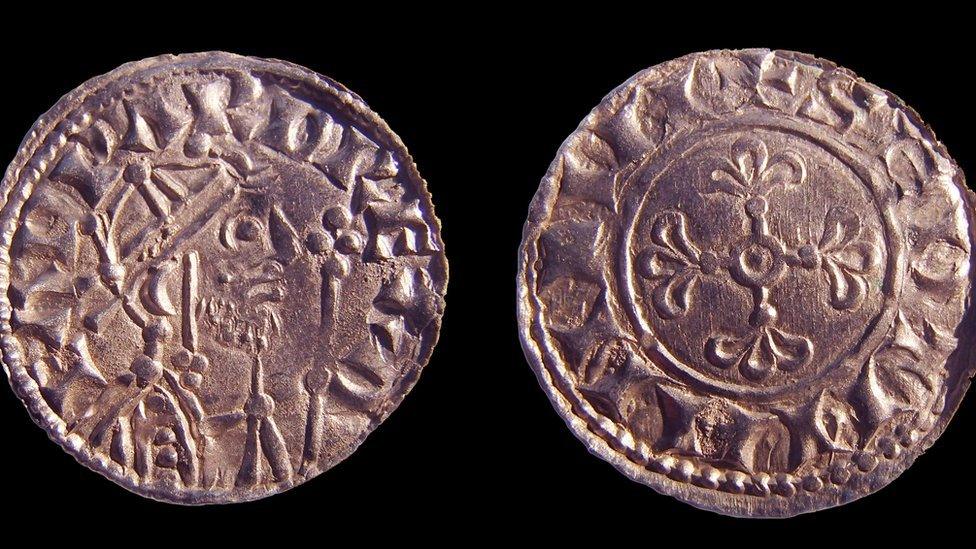Iron Age coins found in 1990s declared treasure trove
- Published
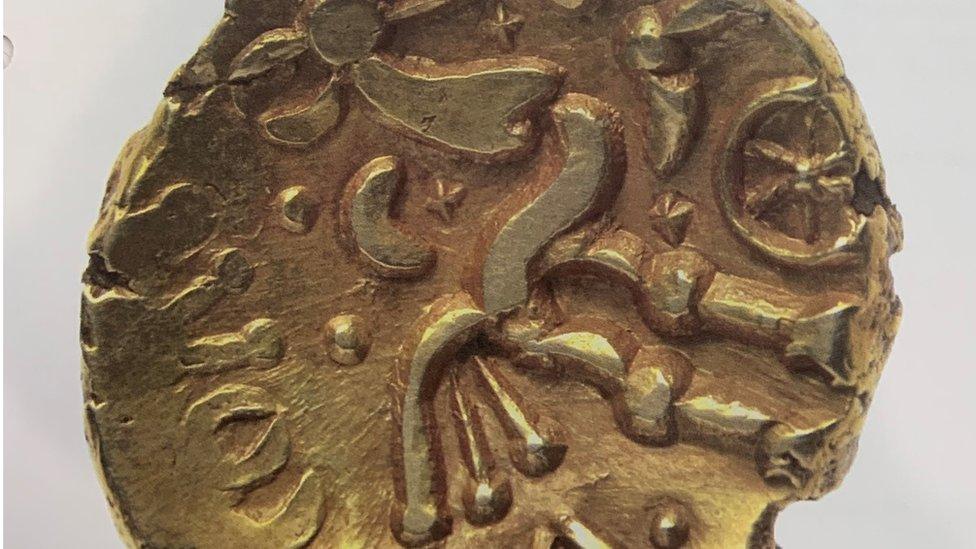
The single gold coin, known as a 'Stater' was produced between 20BC and 10AD.
A hoard of 17 Iron Age coins has been declared treasure trove by a coroner.
The coins were unearthed over a period of years between 1993 and 1995 in the Dursley area of Gloucestershire.
Experts have dated them between 50BC and 10AD, and they have been associated with the tribe known as the Dobunni, the coroner said.
The coins, 16 silver and one gold, were discovered by local man Michael James and are currently being held at Bristol Museum.
The silver coins have been identified as Western British Iron Age units of the 'Cotswolds Eagle' type (50 to 20BC).
A 'scattered hoard'
The single gold coin, known as a 'Stater' is inscribed 'Corio' and was produced between 20BC and 10.
'Treasure trove' refers to valuable items, often gold or silver, found hidden and of unknown ownership. Legally the hoard is the property of the Crown.
Gloucestershire deputy coroner, Roland Wooderson said: "It was only after the finder was recently going over his collection of past finds that he realised these coins could be a scattered hoard.
"At least two of the coins have been struck from the same die."
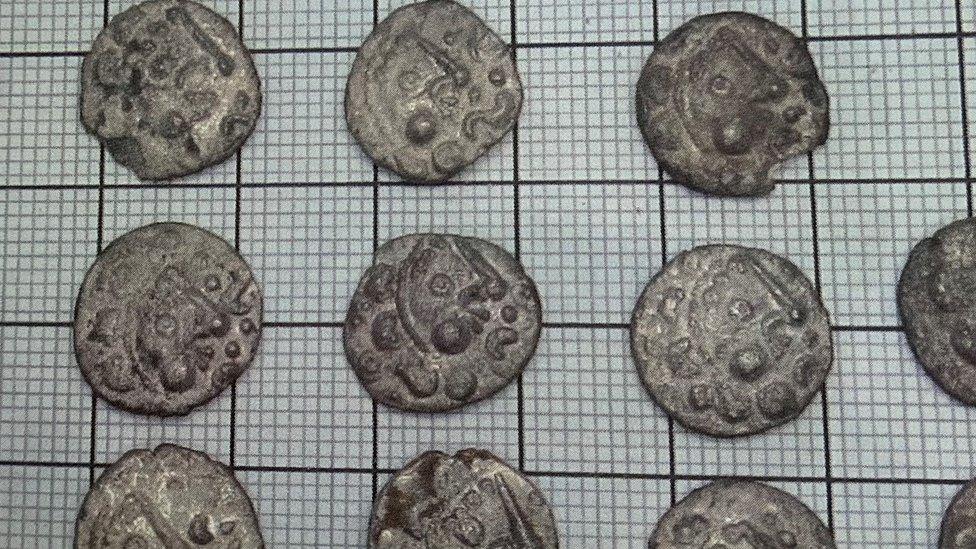
The coins have been associated with the tribe known as Dobunni
'Deliberately hidden'
"Because of the period when the finds were made they do not come under the 1996 Treasure Act but instead the old law of 'Treasure Trove," he added.
It is believed likely that the coins were deliberately hidden, deposited by the owner with the intention of recovering them at a later date.
Kurt Adams, Finds Liaison Officer for Gloucestershire and Avon, said: "These coins were produced in the area of the modern counties of Gloucestershire, Avon and western Oxfordshire and parts of Herefordshire, Worcestershire, Warwickshire, Berkshire, Wiltshire and Somerset.
Dr Denise Wilding, the Treasure Registrar of the British Museum, said the coins "appear to qualify as treasure in terms of both their age and their precious metal content."
The Museum in the Park in Stroud has expressed an interest in acquiring the coins.
Correction 17 May 2022: We were originally supplied with the wrong name of the coins' finder. This has now been changed to Michael James.

Follow BBC West on Facebook, external, Twitter, external and Instagram, external. Send your story ideas to: bristol@bbc.co.uk , external
Related topics
- Published31 January 2022
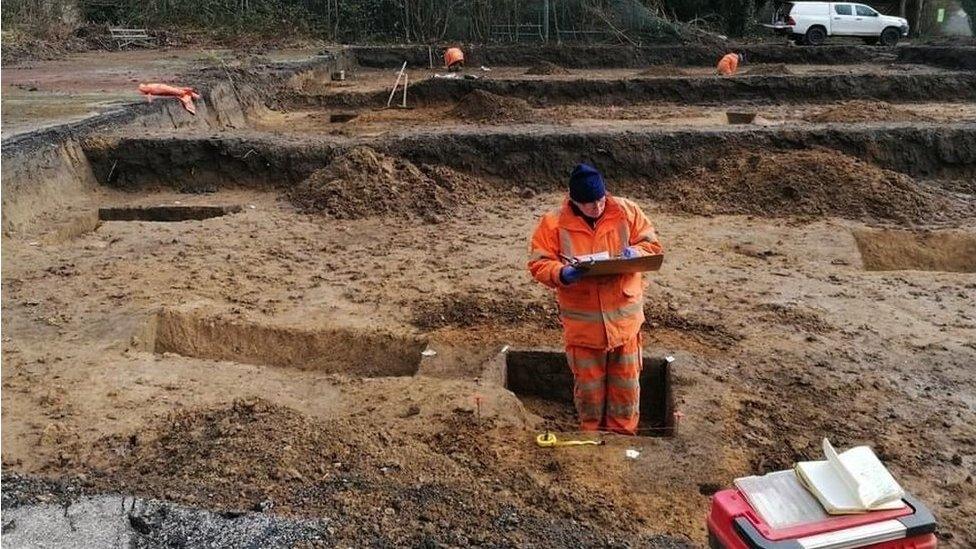
- Published29 September 2021
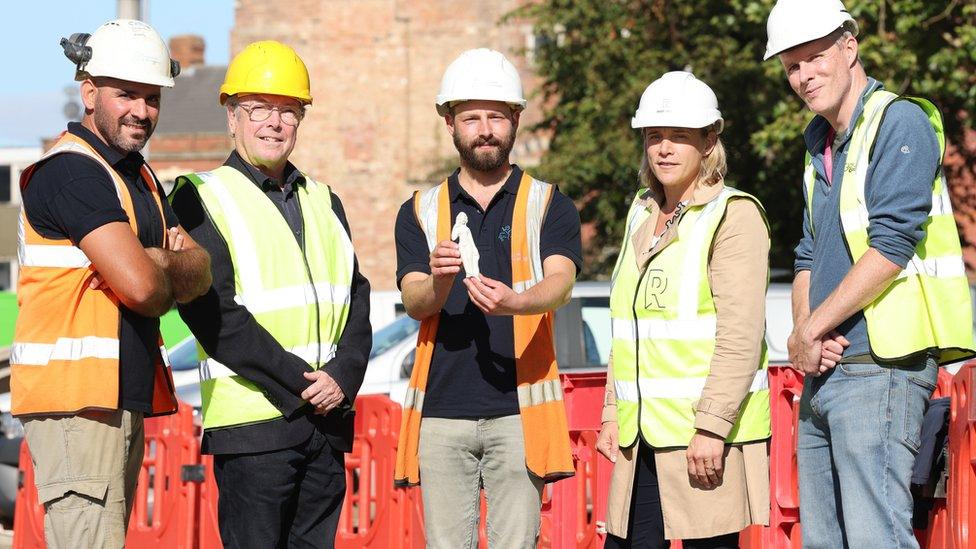
- Published27 July 2021
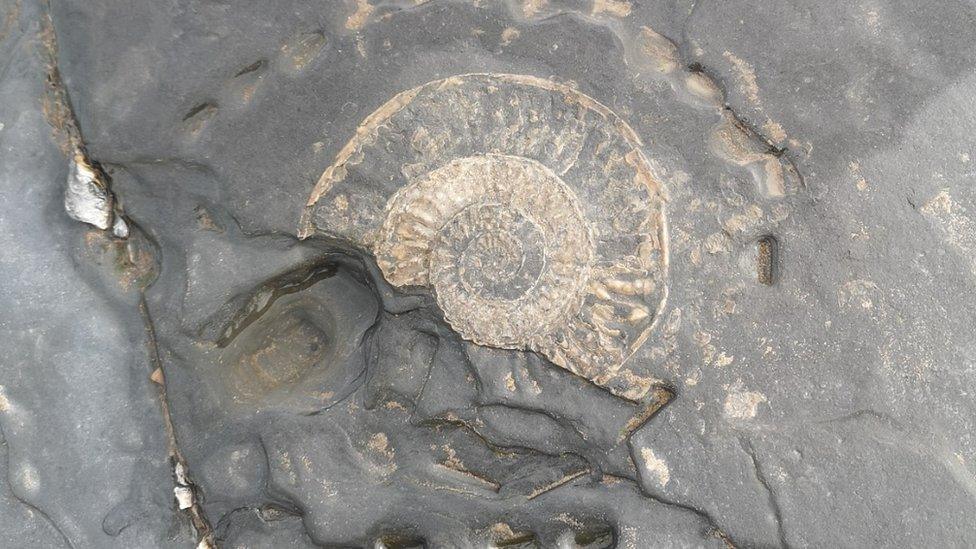
- Published5 February 2020
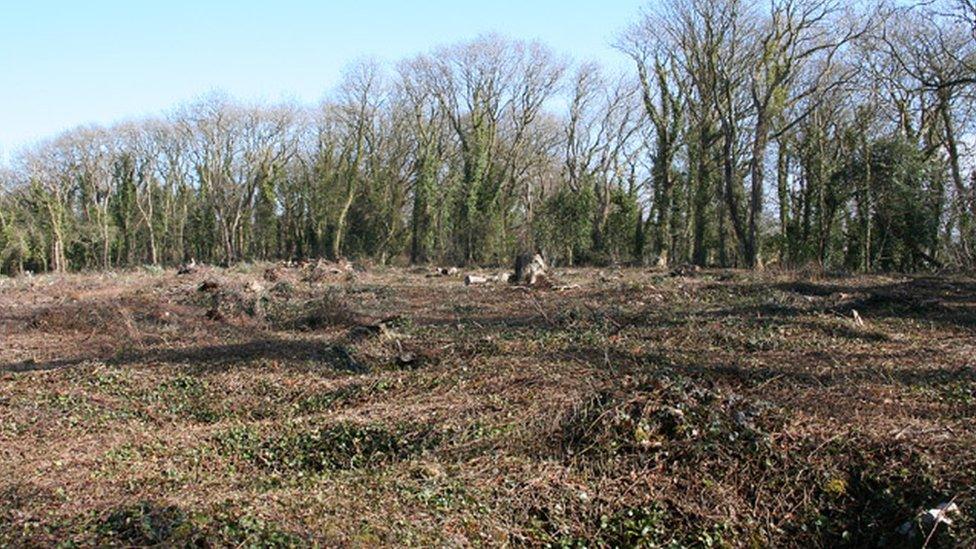
- Published28 August 2019
